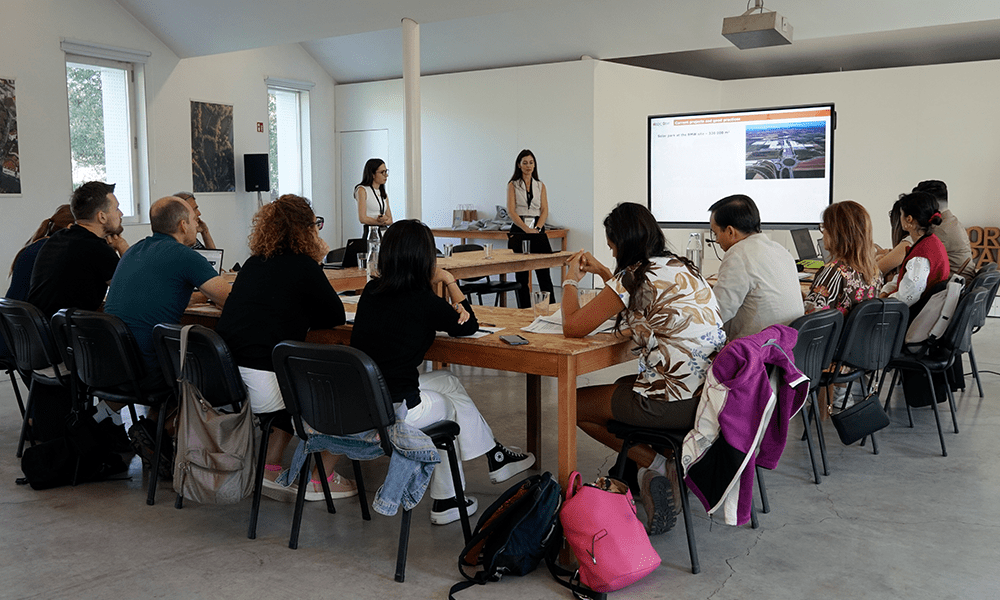The City Expert Support Facility (CESF), through NetZeroCities / Climate-KIC, is requesting quotation for preparation of the study “Market analysis and study of the feasibility and profitability of green energy purchases for the Warsaw Purchasing Group (WGZ)”. The Warsaw Purchasing Group (WGZ) is a municipal group purchasing electricity for its members. It was established in 2013 and its initiator and organiser is the Mayor of the City of Warsaw.
About the request
In 2025, the WGZ includes 952 units financed by the budget of the City of Warsaw:
- 869 city organisational units (schools, kindergartens, nurseries, district real estate management divisions, municipal guard, zoo, sports centers),
- 8 local government budget establishments,
- 75 legal entities (including companies: tram company, water supply and sewage systems company, subways company, bus company, hospitals, health centers, libraries, museums, theaters, community centers, fire department).
The total planned volume of electricity consumption in 2024 was 649 GWh and in 2025 it is expected to be 637 GWh.
Since last year, the WGZ has also been coordinating the process of selling the excess electricity generated in the city’s RES installations and returning to the grid.
Context and rationale
Purchasing “green energy” (from green certificates) is crucial for the City of Warsaw for three reasons: 1) to meet its own energy needs from resilient emission-free sources and 2) to actively shape the energy market to support public climate neutrality objectives, as purchases of green energy, in the case of a large city like Warsaw can significantly change the structure of energy supply, prompting energy sellers to seek new, non-carbon sources of energy, accelerating the energy transition. 3) as a key component of a sustainability and resilience strategy for local governments, with both environmental and economic benefits. Supporting renewable energy sources is also the realization of social responsibility, improving the quality of life of residents and building a better and resilient future for the next generations.
The City of Warsaw is a large purchaser of energy, and by purchasing certified green energy it can dynamize the power companies’ transition to such sources. The first reason is important because of the limitations of producing our own energy from renewable sources. Purchasing green energy for the city is an important action towards climate neutrality. It is on the list of main measures covered by the Climate City Contract (CCC), as well as indicated in Warsaw’s Green Vision (Green Cities and Climate Action Plan), a comprehensive plan for the city’s progress towards climate neutrality, as one of the important actions bringing the city closer to achieving the goal of climate neutrality.
In the Warsaw Green City and Climate Action Plan the estimated total annual electricity consumption of all municipal units is 728 GWh (9.71% of total urban consumption). Taking the 637 GWh purchased by WGZ for 2025, it can be assumed that this is 87.5% of the total energy consumed by urban units. The document envisions that in 2025, 100% of the electricity used for buildings and infrastructure managed by the city will come from renewable energy sources. Today it is known that the energy contract for 2025 has been concluded under the current terms.
The requested analysis will provide key answers: first, whether such purchases are feasible, and second, whether there are actual energy companies which are ready to ensure the City of Warsaw will be supplied with the amount of green energy needed. It should be underlined that the number of green certificates is limited on the market and variable throughout the year. That is why it is so important to obtain confirmation from multiple trading companies that it is possible to purchase an adequate number of green certificates. In this context, it is important to keep in mind the energy security of Warsaw and safeguarding the operation of critical infrastructure.
The second important aspect is the financial preparedness of the city to raise the amount allocated for energy purchases. Estimation of the value of the amount of such a contract allows us to decide whether, for the perspective city’s budget, this is possible. This would require extensive consultations both within the City’s financial structures and among WGZ member units. This process should also consider that the price of green energy based on green certificates may well be higher than the price of energy based on the standard grid energy mix, due to the need to purchase green certificates, which is an additional cost, but also due to investment costs, variability of production, the need to maintain stability of supply, and costs due to market regulations. Further critical context is that the outbreak of the war in Ukraine, electricity prices have been much higher than ever before, only this year has seen a stabilization of the price. Nevertheless, the escalation of the conflict across the eastern border is an additional factor potentially driving up electricity prices, and the study should consider this risk and mitigation options.
In sum, through the analysis, it will be possible to get information whether the process of purchasing such an amount of green energy is possible and, having information on its cost, whether it is financially feasible and by when to undertake this process.
The analysis we are planning would undoubtedly be informative for other Polish cities analysing switching to green energy, and the City of Warsaw would aim to share outcomes insofar as appropriate with other public authorities.
Please find all further relevant information including foreseen timeline, full detailed scope, out of scope, milestones, and all related information below.
Timeline and additional information
Interested parties are invited to submit their proposals by 14 April 2025 to Mateusz Hoffmann and Luisa Carretti [CESF@netzerocities.eu]. Proposals should include and address all specific requirements related to the request which can be found below.





